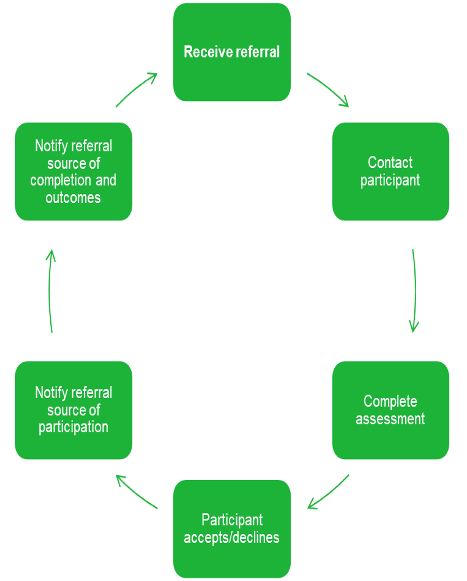CareLink’s specially trained Occupational Therapists and Speech Language Pathologists provide two evidence-based interventions for community-dwelling older adults with memory impairment.
Healthcare Providers
NOW AVAILABLE TO RHODE ISLAND RESIDENTS
Qualifications to participate:
• RI resident
• Community Dwelling
• Cognitive impairment
Referral Process
Contact:
Kelley Hurley, ADPI Grant Coordinator
[email protected]
401-490-7610 ext. 116

Cognitive Stimulation Therapy
Evidence-based intervention that addresses:
• memory
• thinking skills
• quality of life
Using standardized, themed sessions such as:
• discussing current news stories
• listening to music or singing playing word games
• doing a practical activity such as baking
The sessions are designed to be relaxed, fun and to create opportunities for people to learn, express their views and work with others in a sociable setting.
CareLink Connects
Cognitive Stimulation Therapy groups held at various locations throughout RI.
• One hour, 2x/week for 7 weeks
Cognitive Stimulation Therapy (CST) and iCST
The efficiency cognitive stimulation therapy (CST) for people with mild-to-moderate dementia: A review
Skills2Care®
Evidence-based intervention that addresses:
• behaviors that impact the individual with Alzheimer’s Disease and Related Dementias (ADRD) and their caregivers.
Occupational Therapists certified in Skills2Care® teach caregivers how to manage the day-to-day challenges of dementia through:
• education
• skill-building
• environmental strategies and adaptations
Goal:
• Keep loved ones at home as long as possible through caregiver support and education.
Skills2Care® for Individuals with Intellectual and Developmental Disabilities
CareLink is one of the only providers of Skills2Care-IDD in the nation. This intervention has been adapted to provide Skills2Care to individuals with intellectual and developmental disabilities (I/DD) and ADRD who are living at home with caregivers or in group home settings.
